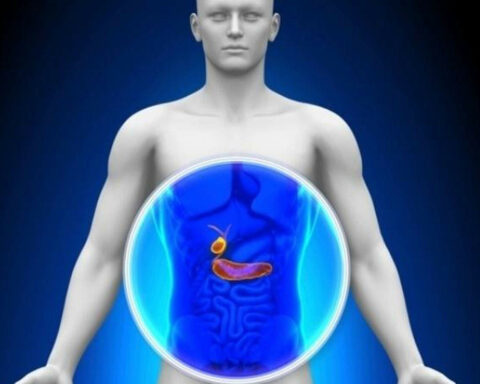Inflammatory Bowel Disease (IBD) is one of the most frustrating gastric conditions. It is quite common, with 1 out of 10 people being diagnosed with IBS symptoms. For the most part, this condition is often mistaken for other gastric ailments like irritable bowel syndrome, but effective treatments are few and far between. However, the medical literature has revealed that cannabidiol oil (CBD) continues to display promising therapeutic properties that benefit sufferers of inflammatory bowel disease. That said, let’s examine the science behind it and how it works.
How is IBD Diagnosed?
Inflammatory Bowel Disease (IBD) comprises two conditions, namely, ulcerative colitis and Crohn’s disease. Both conditions are characterized by chronic inflammation of the gastrointestinal tract. In severe cases, this inflammatory syndrome damages the gastrointestinal tract. Unlike ulcerative colitis that only affects the colon and rectum, Crohn’s disease can affect any part of the gastrointestinal tract from the mouth to the rectum. Aside from its symptoms, IBD is often diagnosed through a combination of three studies or procedures, namely:
- Colonoscopy (diagnosis for ulcerative colitis)
- Endoscopy (diagnosis for Crohn’s disease)
- Imaging studies include magnetic resonance imaging (MRI), computed tomography, and contrast radiography.
What causes IBD?
The exact origin or triggers of IBD are unknown, but experts link the condition to a defective immune system. Usually, a perfectly functioning immune system would seek to defend the body by attacking microbes such as viruses and bacteria. But in the case of IBD, the immune system malfunctions or responds inappropriately to genetic or environmental triggers, causing inflammation of the digestive tract.
Furthermore, experts say that ulcerative colitis is the main trigger of painful response in the large intestines and rectum, with prolonged irritation damaging the gastrointestinal tract. Traditionally, cannabis has been used in some cultures to ease bowel irritation and disturbances. CBD Oil, an extract from the Cannabis Sativa plant, possesses the properties that can activate cannabinoid receptors. And an increase in activity in cannabinoid receptors will elicit beneficial outcomes such as a decrease in bowel irritation. Other useful outcomes that result from CBD Oil use for IBD include:
- Enhanced sleep.
- An increased urge for food.
- A cut back on nausea.
Because of the aforementioned useful outcomes, researchers now believe that CBD Oil could be a potentially pure, natural, and safe remedy for Crohn’s disease and ulcerative colitis – two key drivers of Inflammatory Bowel Disease.
Conventional Treatment of IBD
Several classes of approved medications may be used to treat IBD. Some vaccinations are even recommended to cut back on infections. Those prescription medications range from corticosteroids and aminosalicylates to immuno-modulators and biologics. But in severe cases of IBD, surgical intervention may be necessary to remove the damaged parts of the digestive tract. And because ulcerative colitis and Crohn’s disease affect different parts of the digestive tract, different surgical procedures may be used.
Where does CBD come into the Game?
CBD Oil is classified as a phytocannabinoid extracted from the Cannabis Sativa plant (Hemp and Marijuana). And unlike THC, CBD does not contain the intoxicating characteristics that alter brain function. CBD behaves differently in the body: it doesn’t attach to brain receptors like THC. Instead, it regulates and modulates several body functions via the endocannabinoid system – a homeostatic master network that regulates the immune and digestive system, the central nervous system, and other organs.
In doing so, the endocannabinoid system (ECS) uses two types of receptors (CB1 and CB2 receptors) to maintain balance in body organs and functions whenever the balance is compromised. What CBD does, in this case, is catalyzes the production of the cannabinoid by signaling to the endocannabinoid system. Regarding IBD, the digestive tract has numerous CB2 receptors that regulate the gut. CBD oil induces more cannabinoids via the endocannabinoid system. And with more endocannabinoids circulating, functional disorders like IBD can be effectively managed without the undesired side effects from conventional pharmacological treatments.
Symptoms of Inflammatory Bowel Disease (IBD)
IBD may not be classified as a life-threatening condition, but its symptoms can be as frustrating as possible. The condition has been linked to a widespread dysfunction of the immune system that leads to the malfunction of the gastrointestinal tract. That said, the symptoms of IBD can easily be misunderstood for irritable bowel syndrome. However, IBD is diagnosed and proven by swelling or inflammation in the digestive tract, with endoscopy and colonoscopy being used. Nonetheless, the following symptoms are associated with IBD:
- Persistent diarrhea.
- Indigestion.
- Abdominal pain.
- Changes in bowel movements.
- Bloating.
- Rectal bleeding and bloody stool.
- Fatigue.
- Weight loss.
- Nausea.
- Gas and mucus in stool.
- Constipation.
Benefits of CBD Oil for Inflammatory Bowel Disease
- CBD Oil addresses endocannabinoid deficiencies.
- It prevents the gastrointestinal tract muscles from being hyperactive.
- Increase the urge for food.
- CBD Oil helps regulate and modulate the microbes in the gut, hence improving gut health.
- It manages to cramp.
That said, people suffering from diarrhea-dominant Inflammatory Bowel Disease are more primed to benefit from CBD Oil because of its properties that minimize muscle contraction in the gastrointestinal tract. For those with bloating or constipation-dominant IBD, CBD will come in handy because it relieves inflammation and controls your appetite.
Easing IBD using CBD Oil: Researchers’ Say
Many researchers and years of clinical trials have confirmed that Cannabidiol (CBD) possesses the properties that can cut back on aches resulting from bowel inflammation and promote a patient’s urge for meals by alleviating nausea. Analysis in the past few years has revealed strong proof that CBD alleviates symptoms associated with Crohn’s disease and ulcerative colitis – two key drivers of inflammatory bowel disease. IBD is a cumulative term that refers to all illnesses that affect the gastrointestinal tract of the human body. And researchers are clarifying that medical marijuana is a pure, natural, and friendly alternative option for the treatment of IBD. And while more is to be done to investigate more benefits of CBD oil for IBD patients, preliminary tests on ulcerative colitis and Crohn’s disease topics have shown promising results. Regarding usage, it would be best to use the full-spectrum CBD Oil for the ultimate therapeutic usefulness if you are looking to try out CBD Oil.
- FDC – Giejo Magazine Article - July 29, 2023
- MoriMa Tea the – Chinese tea culture - April 26, 2023
- Missionary Position – Least Likely To Bring You To Climax - April 7, 2023









